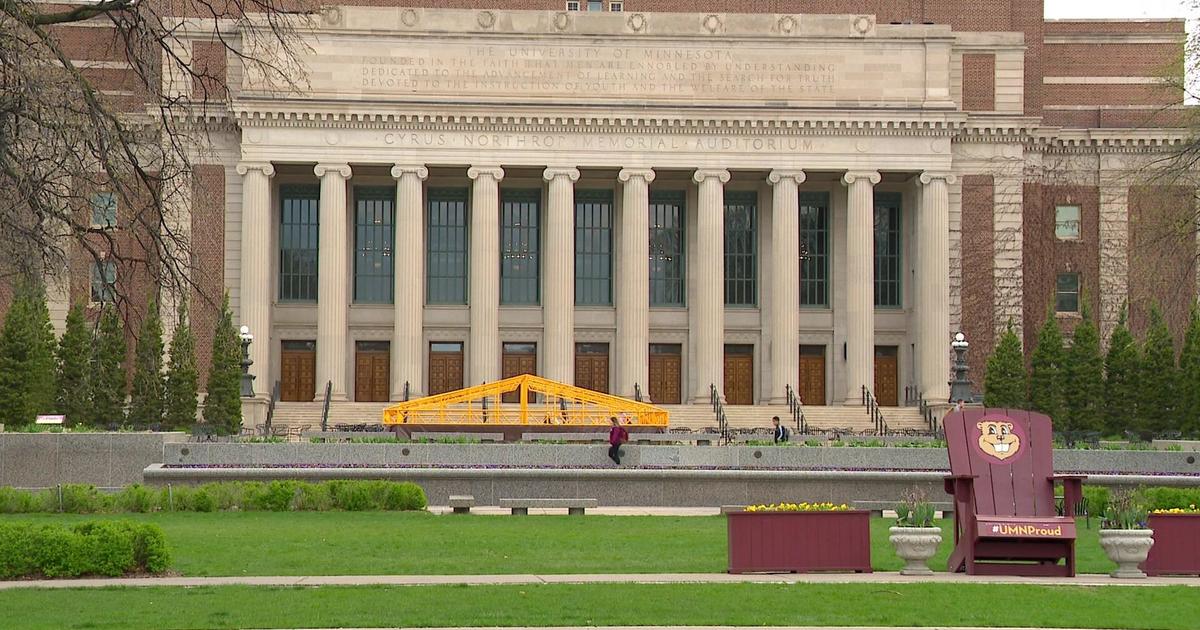Image of Prophet Muhammad shown in Hamline University art class, sparking discussions on academic freedom
ST. PAUL, Minn. – A battle over free speech, academic freedom and claims of Islamophobia at Hamline University is getting national attention.
An adjunct professor teaching an art history class showed an image of the Prophet Muhammad, upsetting some Muslim students on campus.
"It hurts and it breaks my heart to stand here to tell people and beg people to understand me, to feel what I feel," said Aram Wedatalla, president of the Muslim Student Association at Hamline University.
Wedatalla was in the art history class where images of the Prophet Muhammad were shown.
"I am 23 years old. I've never seen a picture of the Prophet, never in my whole entire life, and it breaks my heart that a professor who is supposed to be my role model, show a picture of the Prophet with a trigger warning," she said.
Dr. Erika López Prater, an adjunct professor at Hamline, says she had previously warned students in the syllabus and in class that images of holy figures, including the Prophet Muhammad and the Buddha, would be presented. Wedatalla went to University administration and expressed her concerns.
Dr. López Prater was allowed to finish the semester teaching, but her contract was not renewed.
The Muslim Public Affairs Council put out this statement of support for Dr. Lopez Prater: "We stress the importance of education in the Islamic tradition. On the basis of our shared Islamic and universal values, we affirm the need to instill a spirit of free inquiry, critical thinking, and viewpoint diversity in the university setting."
Many Muslims believe drawing pictures of the Prophet Muhammad is seen as a form of idolatry, which is viewed as a sin in Islam.
"Drawing the picture or the image, not only Prophet Mohammed but all prophets, are forbidden," said Iman Professor Hassan Mohamud.
Some in academia are concerned this incident could impact academic freedom. WCCO spoke about the controversy with David Schultz, a political science professor at Hamline.
"There's a difference between academic discussions in the classroom versus, I don't know, hate speech scrawled on the side of a building," Schultz said.
The Council of American Islamic Relations in Minnesota (CAIR-MN) says the trigger warnings weren't enough.
"This idea of academic freedom being absolute is absolutely wrong," said CAIR-MN Executive Director Jaylani Hussein.
WCCO has not been able to contact Dr. López Prater.
Hamline University President Fayneese Miller released the following statement:
Hamline University Statement 011123 by WCCO - CBS Minnesota on Scribd
The Board of Trustees for Hamline University released the following statement:
"As Minnesota's first university we've learned a lot in our nearly 170 years. Recent events have required us to look deeply into our values. We are a beautifully diverse community committed to educating our students and ourselves, and sometimes that means we need to make space for hard conversations and serious self-reflection. This is one of those times. We are listening and we are learning. The Hamline University Board of Trustees is actively involved in reviewing the University's policies and responses to recent student concerns and subsequent faculty concerns about academic freedom. Upholding academic freedom and fostering an inclusive, respectful learning environment for our students are both required to fulfill our Mission. We will move forward together and we will be stronger for it."
-Ellen Watters, Chair, Hamline University Board of Trustees
The Council on American-Islamic Relations (CAIR) released the following statement:
On Friday, the University of Minnesota's art history department, where López Prater obtained her doctorate in 2019, issued a statement which said, in part:
"As has been widely reported, and especially well documented in a New York Times article of January 8, 2023, Dr. López Prater showed a 14th-century manuscript painting depicting the Prophet Mohammad in her art history survey course, prompting student complaint and the subsequent cancellation of Dr. López Prater's spring semester course. This happened without the due process of formal investigation, without an opportunity for Dr. López Prater to respond to the administration's ill-informed and unfounded accusations, and without good-faith institutional investment in open dialogue or the restorative practices of communication and relational repair. The blame for the mishandling falls entirely to Hamline's administration."
To read the entirety of the art history department's statement, click here.





